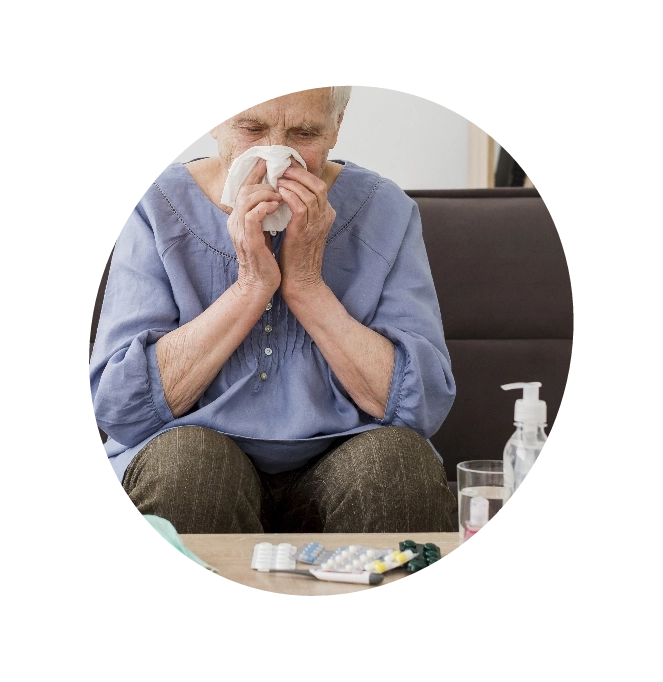What is an Allergy?
An allergy is the body’s response to certain substances in the environment that do not cause reactions in most people. This is considered as among the most common chronic conditions around the world. It can range from mild to life-threatening reactions.
Normally, the immune system produces antibodies. These are blood proteins that can recognize foreign substances and neutralize them. If a person has an allergy, his defense system produces antibodies that can identify a particular substance and regard them as harmful. This results in a chain of events known as an allergic reaction.
According to the Asthma and Allergy Foundation of America (AAFA), about 1 out of 6 Americans (more than 50 million) have an allergy to indoor or outdoor:
- Allergens
- Foods
- Medications
- Insects
- Latex
The number of people who have an allergy continues to increase worldwide as this condition can be passed on from parents to their children.
What Causes an Allergy?
When a person with an allergy becomes exposed to allergens, the immune system releases chemicals known as histamine. This chemical triggers an allergic reaction. Here are the common forms of allergens:
Airborne allergens
These are also called
aeroallergens. They are substances of biological origin, such as pollen, dust mites, molds, and animal dander.
Foods
The U.S. Food and Drug Association (FDA) has identified eight foods as major food allergens. These are milk, eggs, fish, shellfish, tree nuts, peanuts, soybeans, and wheat.
Medications
Drug allergy can be provoked by prescription, nonprescription, and herbal medications. Antibiotics and NSAIDs are among the drugs that can trigger an allergic reaction.
Insect stings
Stings from honeybees, wasps, hornets, fire ants, and yellow jackets can cause allergies if their venom is injected into the skin.
Latex and other substances
Latex is a natural rubber used in many products. Medical gloves, household gloves, condoms, elastic clothing, balloons, and erasers usually contain latex.
What are Allergy Symptoms?
The symptoms of allergy that you may experience can vary depending on the form of allergy that you have. Allergic reactions may involve the skin, nasal passages, airways, and the digestive system. It can also range from mild, moderate, or severe.
Here are the usual symptoms of allergy based on the type of allergen:
- Hay fever (pollen allergy) or allergic rhinitis
- Sneezing
- Runny or stuffy nose
- Itching of the eyes, nose, and/or roof of the mouth
- Red, swollen, and watery eyes
- Food allergy
- Hives
- Nausea
- Swelling of the lips, tongue, face, and/or throat
- Tingling of the mouth
- Drug allergy
- Rash
- Itching
- Hives
- Swelling of the face
- Wheezing
- Insect sting allergy
- Swelling or edema at the site of the sting
- Itching
- Hives
- Cough
- Chest tightness
- Atopic dermatitis or eczema
- Reddened skin
- Itching
- Flaking or peeling
Some allergies can lead to a severe reaction, which is called anaphylaxis. This is potentially life-threatening and should be considered a medical emergency. Some signs and symptoms of anaphylaxis are:
- Severe shortness of breath
- Chest tightness
- A sudden drop in blood pressure
- Loss of consciousness
- Lightheadedness
- Nausea and vomiting
- A rapid, weak pulse
- Skin rashes
How to Treat Allergy?
Staying away from substances that may trigger an allergic reaction is the best way to avoid reactions. It is best to identify which allergens can trigger your symptoms so that you will know what to avoid.
Below are the treatment options for allergic reactions:
Medications
Allergy prescriptions or over-the-counter medications are commonly used to help manage the symptoms of allergies. Some of the common medications are antihistamines, corticosteroids, leukotriene modifiers, cetirizine, loratadine, decongestants, and cromolyn sodium.
Immunotherapy
This form of treatment is recommended for severe forms of allergies or if the allergy cannot be relieved by conservative options. This involves numerous injections containing a purified allergen. Gradually increasing doses of allergens are given over the course of a few years.
Emergency epinephrine
Severe allergies and anaphylaxis can only be managed by an emergency dose of epinephrine. An epinephrine shot must be given right when anaphylaxis is recognized. Its vasoconstrictor effect can decrease the swelling of the upper airways, hypotension, and shock.

